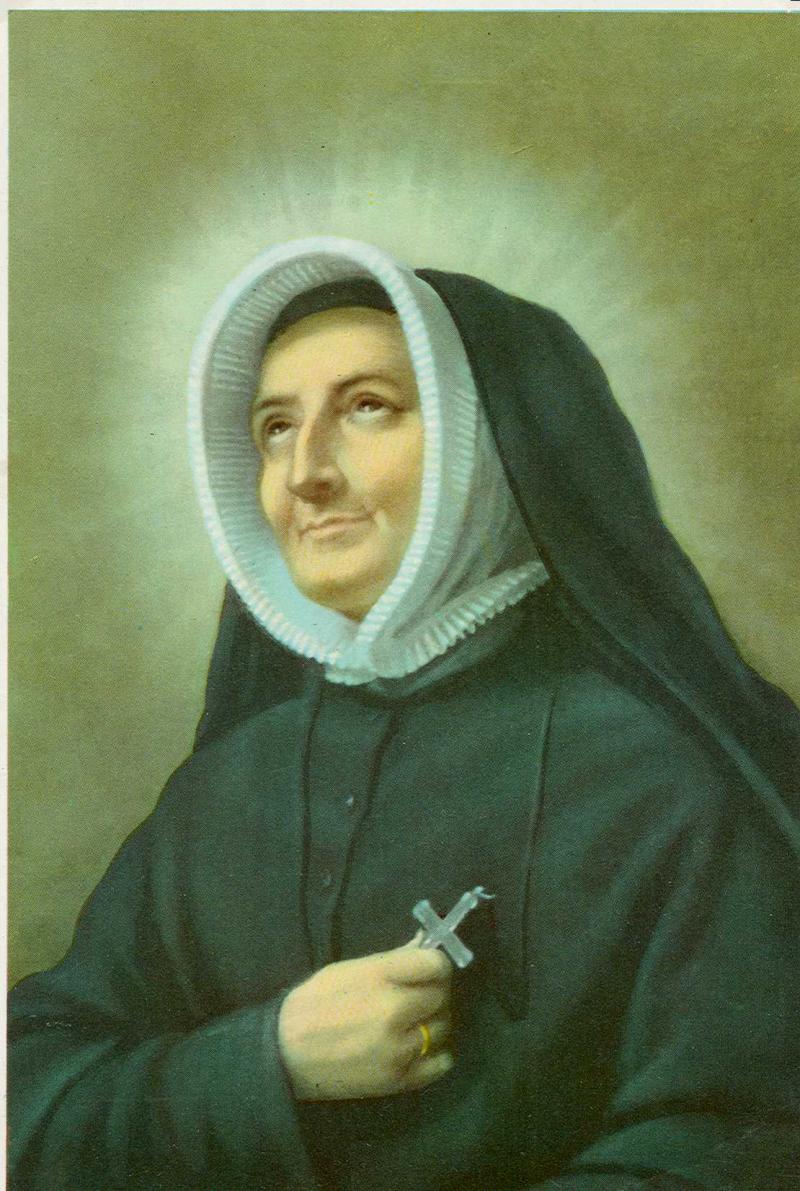
Reflection for the Feast of Saint Madeleine Sophie
May 25, 2020
Province Prayer Service
By Juliet Mousseau, RSCJ
Four months ago tomorrow, January 26, 2020, I made my final profession as a Religious of the Sacred Heart in a celebration with eight other sisters from around the world. A few days later, when we all went home, we were just beginning to see the impact of a global pandemic. The sisters from Korea, Bang Jung Hye and Kim Ji Hye, were especially sensitive to it, and when they returned home large gatherings were cancelled, so that they were unable to have their thanksgiving celebration. The same day as their cancelled celebration, Amelie made her final profession in the church of St. Francis Xavier in Paris, in the presence of Sophie and a crowd of parishioners. A few weeks later, I celebrated here in St. Charles with a group of sisters, friends and family. While we could see the pandemic’s shadow here, it had not yet hit home.
By that time, we knew that something was going on in China and in northern Italy. Other places around the world were starting to see their hospitals overwhelmed. That was the end of February. Here we are three months later, living this alternate reality that would have been difficult to imagine before this. We, as a world-wide community of human beings, are sharing a common experience in a way that has never occurred before. Sure, pandemics have happened in the past. The difference with this one is the clarity with which we see its spread throughout the world and the connectedness that allows us to share our experiences with people far away. We can see the numbers of infections and deaths listed by country on a website, updated constantly with the most current counts. We can visit with friends and family across the continent and around the world from the safety of home, and even see their faces, their smiles, their tears.
Sophie could not have imagined these times of separation and connection, yet it is her leadership and imagination that showed us what it means to be One Body in Christ. She knew the importance of remaining one community with infinite diversity, one vine with many branches, one body with many parts. She taught us the message of Jesus, that our love for one another is the bond which unites us. The fact of our love for one another doesn’t mean that we always (or ever) agree or that we think or dress or talk the same way. It also doesn’t mean that we won’t get annoyed or upset or angry with one another. It means that despite our differences, we choose to remain in relationship with each other. As Saint Paul puts it, we are called to “bear with one another and forgive one another.” We wouldn’t need that counsel if we always got along!
Love means more than putting up with someone else, too. My love for you means I want you to be the best person you can be, even if that person is not what I might imagine. Love gives us freedom to follow God’s call down unexpected alleyways. What I imagine for someone else is not nearly as important as what God imagines for them—and so my love must free the other. The paradox is that by freeing them to follow God, I am also strengthening the bond that makes us One Body in Christ.
Our union as One Body is illustrated again in the image of the vine and branches. We hear Jesus say that we cannot bear fruit unless our branch is part of his vine – on that vine we are not united to Jesus alone, but also to everyone else. What we do, how we live, affects the whole vine. Tending and pruning certain branches makes the whole vineyard produce more fruit. This virus has shown us how connected we are, as it has spread throughout the whole world. And as supply chains for food, toilet paper, and face masks fail us. It also shows us how we are connected when one neighbor offers to shop for one who’s at greater risk, and when the friend with the sewing machine makes cloth masks by the hundreds to hand out to whoever needs them, and when China sends medical supplies to Italy with messages of support from the Italian poets.
A vinegrower tends the vine to make it grow better and produce more fruit. Let this time away from the ordinary show us which parts of our life need feeding and which parts need pruning. Like Sophie, we are called to let love for one another be the guide. Whatever leads me away from freedom, away from union with others, and toward unkindness and pride must be pruned. Whatever fosters “compassion, kindness, humility, gentleness, and patience” must be tended and allowed to become more fruitful.
So, let’s ask ourselves:
What must I feed in my life?
What must I prune?
And as Sophie’s family, the family of the Sacred Heart, looking forward to a provincial chapter and general chapter, we ask the same questions:
What do we need to feed, and what do we need to prune?
… so that we are more free to flourish in the life that God dreams for us…
… so that our lives and our love free others.



